7 Natural Products to Clean (and Green) Your House With
Simple and effective cleaning alternatives for a safer and healthier home and planet can be found in your cupboard and pantry
A clean home is a healthy home. Far too often, however, we’re using too many chemical cleaning products and in too great a quantity. We’ve found these natural alternatives to be just as effective in cleaning the entire home as well as being significantly less harmful to our health and environment.
2. Baking soda
A naturally occurring mineral, baking soda (also known as bicarbonate of soda or sodium bicarbonate) is a versatile cleaner. This mineral salt is mildly alkaline and can neutralise many strong odours, as well as being probably the most useful cleaner. When you mix baking soda with water, you have an all-purpose, light-duty cleaner.
USES: As a gentle abrasive, to absorb and eliminate odours and to treat stains on fabrics.
Find out more about the benefits of cleaning with baking soda
A naturally occurring mineral, baking soda (also known as bicarbonate of soda or sodium bicarbonate) is a versatile cleaner. This mineral salt is mildly alkaline and can neutralise many strong odours, as well as being probably the most useful cleaner. When you mix baking soda with water, you have an all-purpose, light-duty cleaner.
USES: As a gentle abrasive, to absorb and eliminate odours and to treat stains on fabrics.
Find out more about the benefits of cleaning with baking soda
3. White vinegar
Vinegar is a good all-purpose cleaner and deodoriser because it’s a mild acid. White distilled vinegar is the most useful type, because it won’t stain. It is also highly antibacterial, killing 99 per cent of bacteria. Add a few drops of essential oil to mask the scent of vinegar.
USES: When mixed with water, it can cut grease and dissolve film on glassware and windows. Remove tarnish from copper and rust stains from sinks by using a little salt and vinegar.
Vinegar is a good all-purpose cleaner and deodoriser because it’s a mild acid. White distilled vinegar is the most useful type, because it won’t stain. It is also highly antibacterial, killing 99 per cent of bacteria. Add a few drops of essential oil to mask the scent of vinegar.
USES: When mixed with water, it can cut grease and dissolve film on glassware and windows. Remove tarnish from copper and rust stains from sinks by using a little salt and vinegar.
4. Lemon juice
Citric acid is one of nature’s great cleaners. Versatile, safe and fragrant, it is known to easily remove tarnish and mineral stains and cut grease.
USES: Lemon juice can help dissolve grease, remove tarnish on items and whiten clothes.
Citric acid is one of nature’s great cleaners. Versatile, safe and fragrant, it is known to easily remove tarnish and mineral stains and cut grease.
USES: Lemon juice can help dissolve grease, remove tarnish on items and whiten clothes.
6. Salt
Salt is naturally abrasive, making it good for scrubbing. Mixed with vinegar or lemon juice, it is known to clean copper and brass.
USES: Salt can be used as a general abrasive, and can remove rust marks and tarnish from copper.
Salt is naturally abrasive, making it good for scrubbing. Mixed with vinegar or lemon juice, it is known to clean copper and brass.
USES: Salt can be used as a general abrasive, and can remove rust marks and tarnish from copper.
7. Essential oils
The pure, natural essences distilled directly from plants are known as essential oils. Tea tree, citrus, thyme, sage, lavender and eucalyptus oils all have disinfectant properties and can be added to any of the natural cleaners listed here for a bit of fragrance.
USES: Essential oils are a natural disinfectant which are good to use all over kitchen and bathroom surfaces.
The pure, natural essences distilled directly from plants are known as essential oils. Tea tree, citrus, thyme, sage, lavender and eucalyptus oils all have disinfectant properties and can be added to any of the natural cleaners listed here for a bit of fragrance.
USES: Essential oils are a natural disinfectant which are good to use all over kitchen and bathroom surfaces.
TELL US
Which natural ingredients do you use to clean your home? And where do they work best? Tell us in the comments section.
MORE
9 Healthy Home Habits to Cultivate for the New Year
Easy-to-Mix DIY Room Sprays Made of Natural Ingredients
Which natural ingredients do you use to clean your home? And where do they work best? Tell us in the comments section.
MORE
9 Healthy Home Habits to Cultivate for the New Year
Easy-to-Mix DIY Room Sprays Made of Natural Ingredients




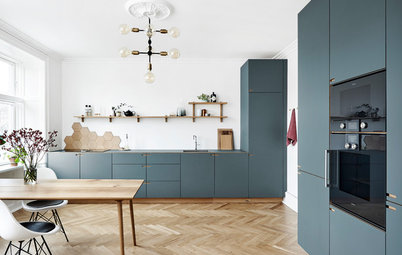
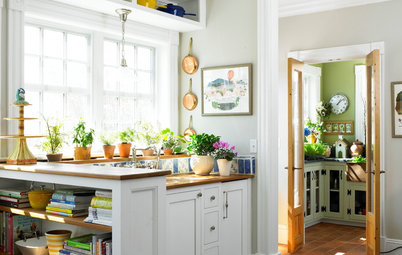








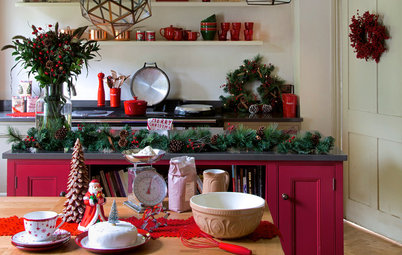
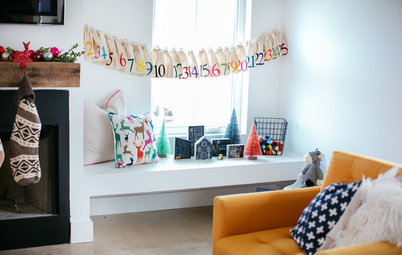
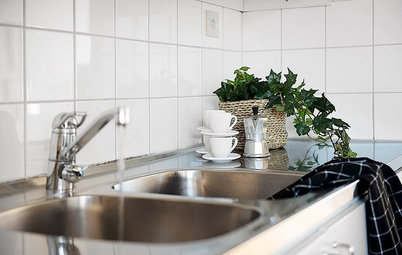
This might sound simple, but this recipe – hot water and plain soap – can perform most cleaning jobs around the home. If you’re not satisfied with this mix, try any of the following natural cleaning agents.